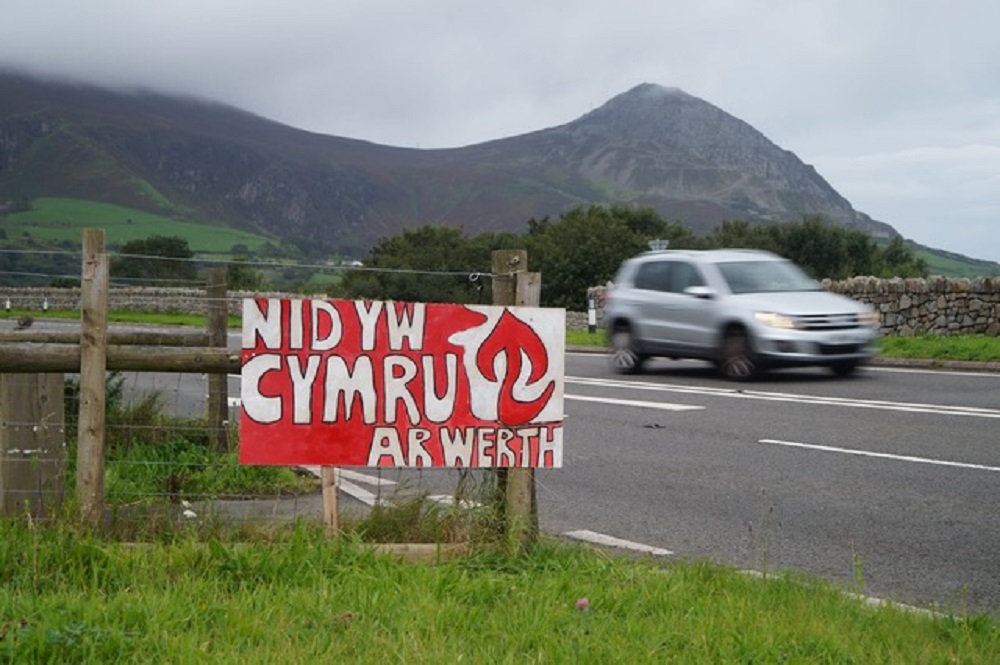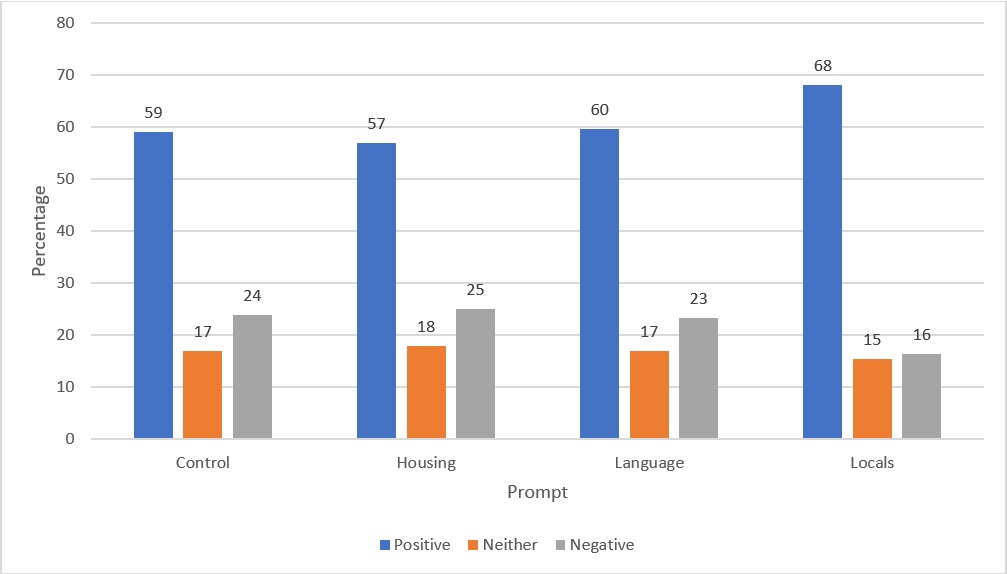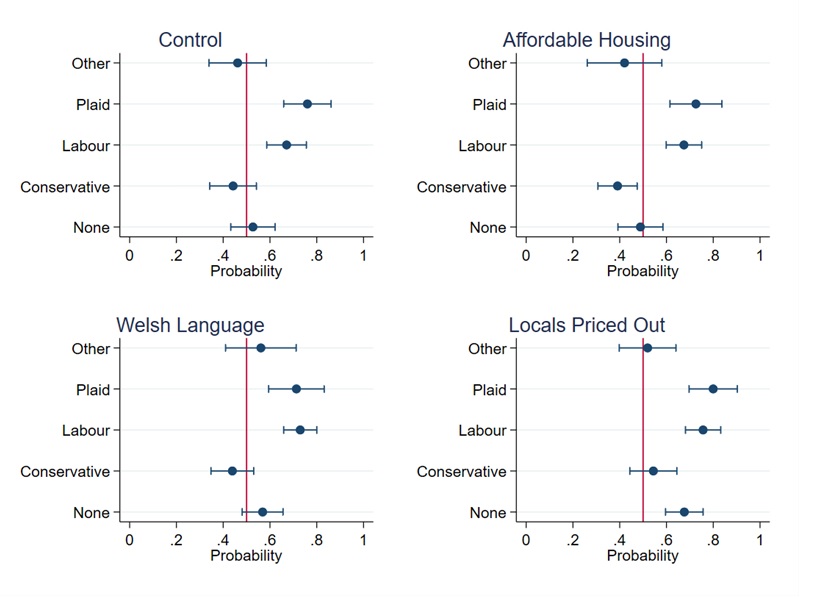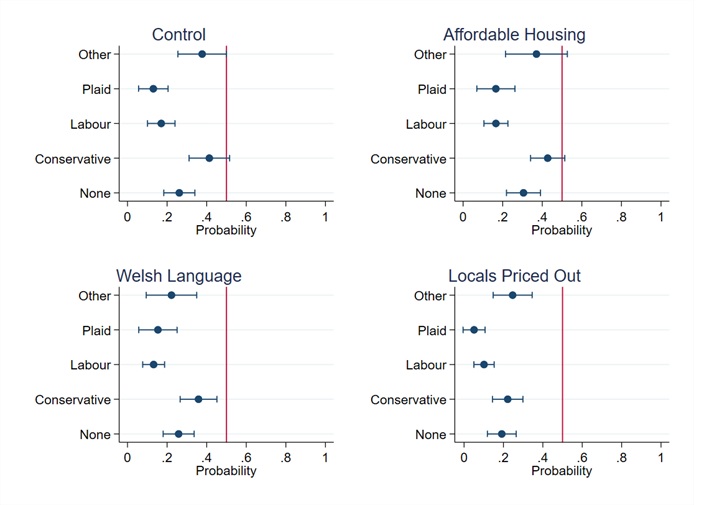‘Hawl i Fyw Adra’? Results from a novel experiment to test voter perceptions on second homes

James Griffiths, Ed Gareth Poole and Jac Larner, from the Welsh Election Study team at Cardiff University’s Wales Governance Centre
Set against the backdrop of intergenerational wealth inequalities and possibilities of remote working that have opened up since the start of the pandemic, second homes have returned to the top of the political agenda in many parts of the developed world. Countries as diverse as Australia, Canada, Italy, New Zealand, Spain, Sweden, and the United States have been grappling with an acute shortage of affordable housing and the spread of expensive second homes that price out locals on lower incomes (see for example Gallent 2020, Pitkänen et al. 2020).
In the UK, the Department of Levelling Up, Housing and Communities has proposed a ban on the use of second homes as short-term holiday lets in England, plans which have followed collective action in some of the most affected communities. For example, in a non-binding referendum – brought forward with the support of a local Conservative councillor – residents of Whitby (North Yorkshire) voted in June 2022 in favour of restricting new housing to “primary residence only and forever (in perpetuity)”.
Yet in terms of their sheer prevalence and their invidious impact on Welsh language communities, second homes arguably have no greater salience than in rural, coastal and Welsh-speaking Wales. Second homes account for approximately 10 percent of all housing stock in Gwynedd, Pembrokeshire, and Ynys Môn, and a staggering 40 percent in particularly affected communities such as Llanengan Community Council (incl. Abersoch) on Pen Llŷn. Far from becoming normalised, highly visible stories such as the relocation of second homeowners from their primary residence during the pandemic and the ‘Hawl i Fyw Adra’ campaign have kept this issue firmly at the top of the Welsh political agenda.
The signing of the Welsh Government-Plaid Cymru Cooperation Agreement in December 2021 has been followed by two major announcements in this policy field. The first, in March 2022, was that local authorities would have the option of increasing council tax premiums on second homes and long-term empty properties to 300%, and that properties would need to be rented out for at least 182 days per year to qualify for the more favourable tax rules for holiday lets. The second, in July 2022, was that councils would be given new planning powers to restrict holiday lets and second homes in areas most affected by their proliferation.
But this speed of political reaction has not been matched by what we know about attitudes towards second home ownership within the wider population. Beyond the older qualitative studies of the attitudes of second home owners (e.g. Buller & Hoggart 1994, Farstad & Rye 2013, Dykes & Walmsley 2015), we are unaware of any quantitative analyses of attitudes within an entire territory towards second home ownership.
Using the 2021 Welsh Election Study (WES), we address this gap by way of a novel experiment to examine attitudes to second homes in Wales. In the March 2022 wave of the WES, 2,988 respondents were randomly split into one control and three treatment groups as summarised in the table below. Respondents in the control group were asked their attitude to the proposed changes to council tax for second homes without any prompt. In the other three groups, a prompt was given that related either to affordable housing, protecting the Welsh language, or locals being priced out of an area.
| The Welsh government has announced that councils can charge a 300% premium on council tax for second homes from April 2023. [Prompt]. Do you generally feel positive or negative about this policy? | |
| Control | [No prompt]. |
| Affordable Housing | One argument for doing so is that it will allow councils to increase the amount of affordable housing. |
| Protect Welsh Language | One argument for doing so is that it will help protect Welsh-speaking areas. |
| Locals Priced Out | One argument for doing so is that it will stop local people being priced out of areas. |
So, what are voters’ base levels of support for this policy? Figure 1 illustrates that a clear majority of the Welsh population support allowing councils to raise council tax on second homes. Absent any prompt, 59% of those in the control group feel either very or somewhat positive about such a change. There is no evidence that Welsh voters are hostile to significantly higher council taxes on second homes; indeed, fewer than one-quarter report feeling negative about such a policy. There is therefore a high base level of support for allowing councils to raise taxes on second homes.
Figure 1: Responses to questions about allowing councils to charge 300% council tax premiums on second homes

N: control – 687; housing – 730; language – 697; locals – 743.
Even from this high base, however, support for increased council taxes rises still further when respondents are prompted with a cue that such a policy might prevent local people from being priced out of areas. Here, over two-thirds (68%) of respondents feel positive about this policy, while only 16% feel negative about it. For the other two policy prompts – increasing affordable housing and protecting the Welsh language – voters’ enthusiasm for the policy does not rise above the (already high) baseline support in the control group.
Support
But which voters support and oppose this policy? Given the split in the party positions on second homes in the Senedd, it is reasonable to anticipate that voters’ party-political support might influence their views on a 300% council tax. To investigate further, we compare voters’ response to the prompts against their vote choice in the constituency ballot at the 2021 Senedd election using statistical modelling. For ease of interpretation, we report the predicted probability of feeling positive about this policy among voters in Figure 2. Voters to the right of the central vertical line are likely to support the policy.
Perhaps unsurprisingly, absent any policy prompt, individuals who voted Labour or Plaid Cymru are very likely to support this policy, while those who voted for the Conservatives are among the least likely to support it. However, note the position of Conservative voters relative to the vertical line. Despite party elites’ positioning on this issue, close to half of their voters feel positive about a 300% council tax premium. In fact, when prompted by the argument that second homes are pricing locals out of their home area, the probability of a Conservative voter supporting the policy increases to 55%.
Figure 2: Predicted probabilities of feeling ‘positive’ about allowing councils to charge 300% council tax premiums on second homes by vote in the constituency ballot of the 2021 Senedd election

Patterns of support are even starker when respondents were asked whether they felt ‘negative’ about the 300% council tax premium proposals. Figure 3 shows that Plaid Cymru and Labour voters generally do not report feeling ‘negative’ in any of the four groups. But Conservative voters become much less likely to view the proposals negatively when they are prompted with concerns about the Welsh language and (particularly) that locals are being priced out. When given this latter prompt, only around a quarter of Conservative voters feel negative about the 300% council tax premium.
Figure 3: Predicted probabilities of feeling ‘negative’ about allowing councils to charge 300% council tax premiums on second homes by vote in the constituency ballot of the 2021 Senedd election

From a representative survey of close to 3,000 Welsh voters, a clear majority of Welsh voters feel positive about proposals to raise council tax on second homes. Even in a straightforward question without any prompt, well over half of the Welsh public support the 300% levy. When it comes to the arguments that people find convincing, trying to avoid locals being priced out seems to unite the Welsh public on second homes, a prompting effect in reducing negative views on the levy that is most pronounced among Conservative voters.
Of course, second homeowners may resist calls for legislation and challenge claims that their presence is a negative for local communities. Elsewhere, there is some evidence that attempts to legislate on second home ownership is not without its risks (see de Oliveira et al. (2015) for Portugal, and Hilber & Schöni (2020) for Switzerland). But in Wales at least, survey evidence indicates that opponents of policies to tackle the proliferation of second homes are pushing against public opinion.
Support our Nation today
For the price of a cup of coffee a month you can help us create an independent, not-for-profit, national news service for the people of Wales, by the people of Wales.






A large majority in the affected areas are in favour of measures to control second/holiday homes, then. This is good news, of course, but I’d be amazed if the findings were otherwise.
Hostility in Cornwall towards second homes is at a level in another world 🌎…… The three big groups on the Cornwall Council – the Tory’s, Independents and Liberals are speaking with one voice as of course is Mebyon Kernow with its half dozen county members and the small Labour group .
A lesson to our Tory’s I think 🤔
I think the hostility towards 2nd homes in Cornwall is only boosted when “celebrities” who have moved in to the area openly admit that they love Cornwall, it’s the Cornish they don’t like.